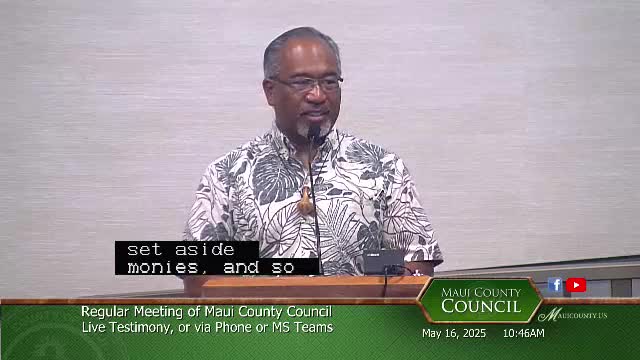Article not found
This article is no longer available. But don't worry—we've gathered other articles that discuss the same topic.
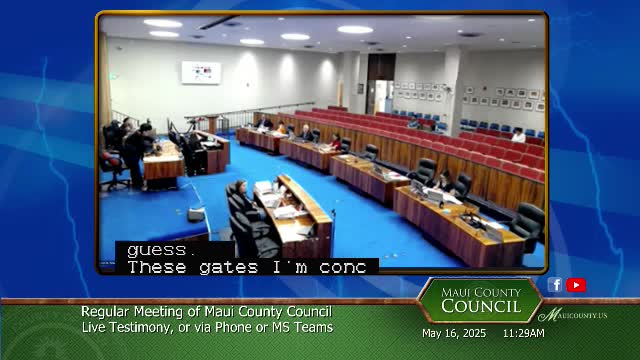
Maui United Way urges council not to cut $12 million allocated for countywide ALICE initiative
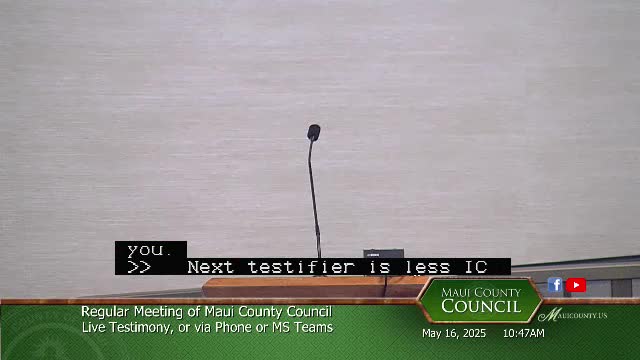
Residents and attorneys urge delay or review of planning‑commission nominations over incomplete applications and potential conflicts
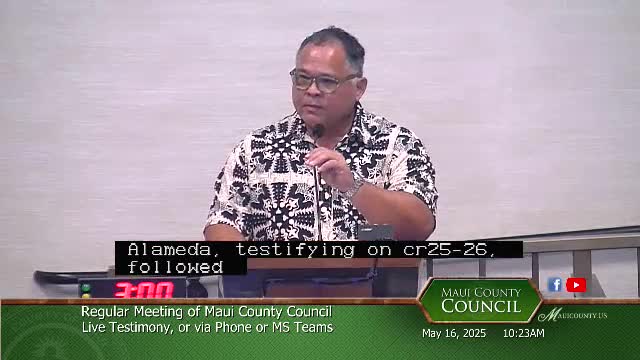
Contractors' group opposes Bill 54, says project‑wide labor agreement would exclude local merit‑shop firms
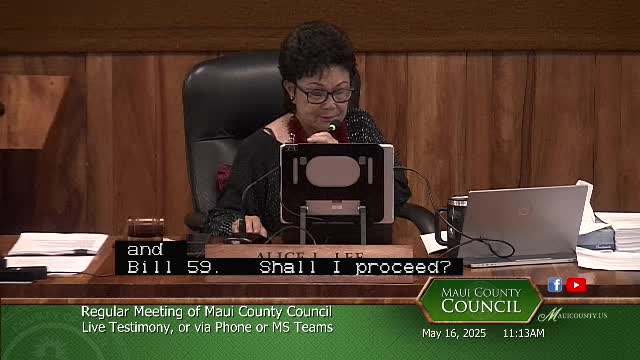
Housing advocates say Pulelehua site has sat idle for two years and call for county accountability on water and permits
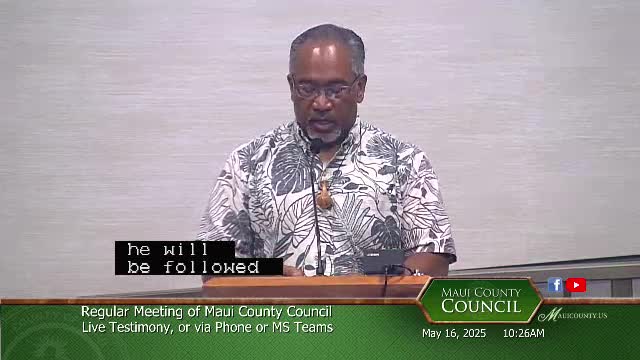
DHHL tells council proposed $21 million MOU would support water projects; officials seek additional $11 million for transmission line
